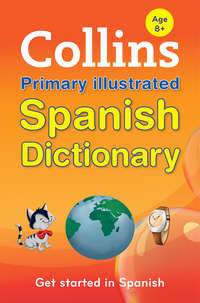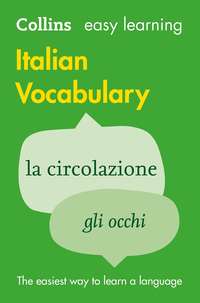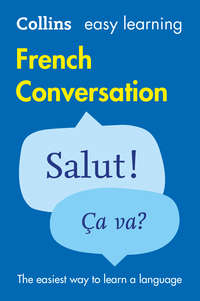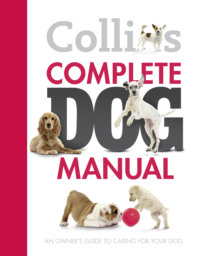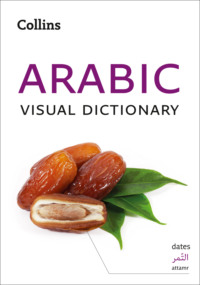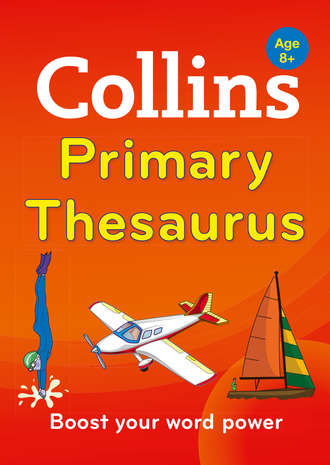
Полная версия
Collins Primary Thesaurus
opaque
The bottle was made of opaque glass, so we could not see clearly what was in it.
club (1) NOUN
A club is an organization of people with a particular interest, who meet regularly.
association
Grandad belongs to an ex-servicemen’s association.
group
Mr Fanshaw runs a local pottery group.
society
Dad is a member of a society for the protection of wildlife.
club (2) NOUN
A club is a thick, heavy stick used as a weapon.
baton
Police carry batons in case they need to defend themselves.
truncheon
In Grandad’s day, all police officers were issued with truncheons.
clumsy ADJECTIVE
Someone who is clumsy moves awkwardly and carelessly.
accident-prone
Matt is accident-prone; he’s always hurting himself somehow.
awkward
There’s something awkward about the way Indira holds her cutlery.
blundering
The blundering chef clattered about in the kitchen.
butterfingered INFORMAL
Butterfingered people should not work in china shops!
lumbering
Giant Grumbleweed was a lumbering hulk with a knack for breaking things.
uncoordinated
My Dad is a very uncoordinated dancer.
coat (1) NOUN
An animal’s coat is the fur or hair on its body.
fleece
In a blur of movement, the shearer had the sheep’s fleece off in seconds.
fur
Stephanie sobbed into her dog Cassie’s fur.
hide
The hide of cows is treated to make leather.

coat (2) NOUN
A coat is a piece of clothing with long sleeves, that you wear over other clothes.

Types of coat:
anorak
blazer
bomber jacket
duffel coat
jacket
kagoul
mackintosh
overcoat
raincoat
waterproof
cold ADJECTIVE
If something is cold, it has a very low temperature.
ANTONYMS: hot or warm
Words for cold weather:
arctic
biting
bitter
bleak
chilly
freezing
frosty
harsh
icy
nippy
perishing
raw
snowy
wintry
Words for feeling cold:
chilled to the bone
freezing
frozen
frozen to the marrow
numb
perished
shaking
shivering
collapse (1) VERB
If something such as a building collapses, it falls down suddenly.
cave in
The miners were trapped when the roof of the passage caved in.
crumple
As the charges exploded, the walls crumpled to the ground.
give way
In 1879, the poorly built Tay Bridge in Scotland gave way in a storm.
collapse (2) VERB
If a person collapses, they fall down suddenly because they are ill.
faint
I nearly fainted when I saw our angry neighbour brandishing my ball.
pass out
The parade ground was so hot that several soldiers passed out.
collect VERB
If you collect things, you gather them together for a special reason.
assemble
For the exhibition, the gallery assembled paintings from all over the world.
cluster
Interested buyers clustered around the beautiful bronze statue.
compile
The editor compiled an anthology of poems.
gather
“Gather your tools up before you run off,” Dad reminded me.
collection NOUN
A collection is a group of things brought together over a period of time.
array
The shelf held a dazzling array of trophies.
compilation
The book is a compilation of short stories by famous writers.

colour NOUN
The colour of something is the way that it looks in the light.
Some colours:
black
blue
brown
green
grey
orange
pink
purple
red
violet
white
yellow
come VERB
If you come to a place, you move there or arrive there.
arrive
As soon as we arrived, my auntie started hugging people.
materialize
In no time at all, thanks to Ratty, a splendid tea had materialized.
show up INFORMAL
Josh showed up at the very last minute, just when we had started to panic.
turn up
Sarah and I weren’t expecting Faith to turn up, but she did.
come about VERB
If something comes about, it happens.
happen
Mr Abiola was walking past the shop when the robbery happened.
occur
The incident occurred at the swimming pool.
take place
The party will take place from three to five o’clock on Saturday afternoon.
comfortable (1) ADJECTIVE
Something that is comfortable makes you feel relaxed.
comfy INFORMAL
Our sofa is comfy – at least our dog Wuffles thinks so!
cosy
The hobbit was extremely reluctant to leave his cosy home.
relaxing
On holiday, Mum loves a relaxing sauna.
restful
The seaside resort had a restful atmosphere.
comfortable (2) ADJECTIVE
If you are comfortable, you are at ease and relaxed.
at ease
Sir George was the sort of person to make you feel at ease straight away.
contented
Gran was contented in her little flat.
relaxed
After a week of her holiday, Mrs Archer felt completely relaxed.
ANTONYM: uncomfortable
common ADJECTIVE
Something that is common exists in large numbers or happens often.
average
The average person doesn’t know much about nuclear physics.
everyday
In a quarry, explosions are an everyday occurrence.
normal
It was normal for Harry to take his granny up a morning cup of tea.
ordinary
It started off like any ordinary day at work.
standard
“A standard-class ticket, please,” I said to the train guard.
usual
The usual lunch on Friday is fish.
ANTONYM: uncommon
company NOUN
A company is a business that sells goods or provides a service.
business
My father runs an electrical business.
corporation
Mrs Fletcher’s tiny company belongs to a huge global corporation.
firm
Mum’s firm is paying for her to go on a management course.
competition NOUN
A competition is an event in which people take part to find out who is the best at something.
championship
Wimbledon is a famous tennis championship.
contest
The two villages faced each other in a tug-of-war contest.
event
The Olympic Games is the world’s leading sporting event.
tournament
Our school entered two teams in the Under-11 netball tournament.
complain VERB
If you complain, you say that you are not happy about something.
bleat
Sam kept bleating that he had lost his pen.
fuss
The customer was fussing over a minute mark on the desk.
grouse
“It’s no good grousing now. You had your chance and didn’t take it,” said Gran.
grumble
Mum always grumbles about the dreadful state of my room.
moan
All my big sister ever does is moan!
whinge
The millionaire rock star was always whingeing about how unfair life is.
complete (1) ADJECTIVE
If something is complete, none of it is missing.
entire
At the end, the entire cast took a bow.
full
“Pay me the full amount now,” the greedy landlord insisted.
whole
“I swear to tell the whole truth,” the witness declared to the court.
complete (2) ADJECTIVE
Complete can mean to the greatest degree possible.
absolute
“You’re talking absolute rubbish,” the major replied to the private.
sheer
The winning jockey leapt off his horse in sheer joy.
thorough
The disobedient little girl made a thorough nuisance of herself.
utter
Chander felt an utter fool dressed as a clown.
complete (3) VERB
If you complete something, you finish it.
conclude
Professor Boffin concluded his talk and then asked if there were any questions.
end
The crowd was in tears as he ended his speech.
finalize
The airline staff finalized arrangements for the plane to take off.
finish
When Gran had finished her tea she turned on the radio.
round off
We rounded off our day out with a delicious meal in a steakhouse.
wrap up INFORMAL
“OK, darlings, we’ll wrap it up for today,” the film director announced.
ANTONYM: begin
completely ADVERB
Completely can mean totally, absolutely and utterly.
absolutely
By the end of the sponsored swim, Kalil was absolutely exhausted.
entirely
“I entirely agree with you,” put in Kaylee.
fully
The new manager said he was fully committed to the club and the team.
totally
Fire totally destroyed the pier buildings.
utterly
You could see by the expression on her face that Isha was utterly fed up.
complicated ADJECTIVE
Something that is complicated has so many parts or aspects that it is difficult to understand or deal with.
complex
It was a complex engine, which my brother struggled to understand.
elaborate
Blofeld had spent years on an elaborate plan for world domination.
intricate
Clock mechanisms are too intricate for you or me to tamper with.
ANTONYMS: simple or straightforward
computer NOUN
A computer is an electronic machine that can store and deal with large amounts of information.
Some types of computer:
desktop
iPad™
laptop
Mac™
notebook
PC (personal computer)
tablet
concentrate VERB
If you concentrate on something, you give it all your attention.
apply yourself to
Previously lazy, Watkins now applied himself to his work and did well in the exam.
be engrossed in
My sister was so engrossed in some telly programme, she failed to see me sneaking up.
focus on
“Today, we are going to focus on fractions,” Mrs Abrahams said, to a chorus of groans.
pay attention to
“Pay attention to what I’m saying, Jamie,” said Dani. “It’s important.”
condition NOUN
The condition of someone or something is the state they are in.
fitness
Army doctors examine the fitness of soldiers each year.
order
The television was in good working order when we sold it.
shape
My grandad is in pretty good shape for a man of 75 – he still goes for a run every morning.
state
“Just look at the state of your trousers!” my stepmum sighed.
confess VERB
If you confess to something, you admit that you did it.
admit
After questioning, the suspect admitted she had stolen the bag.
come clean INFORMAL
“Now come clean, David,” Auntie Julie said. “I know you’ve been at the chocolates.”
own up
The head teacher demanded that the person responsible for the damage should own up.
confused ADJECTIVE
If you are confused, you are uncertain about what is happening or what to do.
baffled
Lyra was baffled. What on earth was the significance of the dust?
bewildered
Bewildered by his sudden fame, Robbie went completely off the rails.
muddled
The useless new parking scheme was a prime example of muddled thinking.
perplexed
Frank stood at the crossroads, totally perplexed by the map he’d been given.
puzzled
“Then I’m puzzled,” Mum said. “How did the biscuit tin fly to your room?”
confusing ADJECTIVE
If something is confusing, it makes you uncertain about what is happening or what to do.
baffling
No body. No weapon. No witnesses. The whole thing was baffling.
bewildering
There was a bewildering choice of stereos.
perplexing
The mystery got more perplexing. Where on earth had the shoe gone?
puzzling
Sergeant Assad found it puzzling that everyone had volunteered for the job.
connect (1) VERB
If you connect two things, you join them together.
attach
When Mum receives nice postcards, she attaches them to the fridge with magnets.
couple
The man in the overalls dropped from the platform to couple the engine to the coaches.
fasten
Phil fastened the papers together with a clip.
join
The plumber joined the two pipes underneath the sink.
link
“This deal,” said the chairman, “will link two fine companies.”
unite
On their wedding day, the couple were united in marriage.
connect (2) VERB
If one thing or person is connected with another, there is a link between them.
associate
He claims that he no longer associates with any of those people.
relate
In good non-fiction writing, each sentence should relate to the one before.
connection NOUN
A connection is a link or relationship between two things.
association
Dad has always had a close association with the school. He attended as a pupil when he was a boy and is now a governor.
bond
There was a bond between the two brothers that could not be broken.
link
There are strong historical links between Britain and India.
relationship
Luis’ relationship with his stepfather was not always an easy one.
contact VERB
If you contact someone, you telephone them or write to them.
communicate with
Television reporters often communicate with the studio by satellite phone.
get in touch with
Message for Mr Sample: please urgently get in touch with your son.
make contact
Joe wants me to make contact when I arrive in New York.
Different ways to make contact:
card
fax
letter
postcard
telegram
telephone
text message
contain VERB
The things that something contains are the things in it.
accommodate
The narrowboat could accommodate up to nine people.
comprise
Our cottage comprises six rooms: three upstairs and three down.
consist of
Pancake mix mainly consists of flour, eggs and milk.
hold
An average household bucket will hold ten litres of liquid.
include
The holiday package includes all flights, accommodation and meals.
container NOUN
A container is something that you keep things in, such as a box or a jar.
receptacle
“What we need,” said Mr Vanstone, “is some sort of receptacle for these tadpoles.”
vessel
A pitcher is a vessel for carrying liquids.
contest NOUN
A contest is a competition or game.
battle
The Cup Final was a battle between a giant club and one of the league’s minnows.
bout
The wrestling announcer began, “This is a bout of eight rounds of three minutes each.”
competition
Mum is a fanatic for entering competitions. She’s always thinking up catchy slogans.
head-to-head INFORMAL
The finish of the sack race was a close-run head-to-head between Mrs Robinson and Miss Penn.
match
The match against Holcombe was played in pouring rain.
tournament
The chess tournament featured players from all over the country.
continue VERB
If you continue to do something, you keep doing it.
carry on
“If you carry on prodding me, I’ll prod you back,” I said to Barry.
keep on
“If you keep on forgetting your homework, you’ll get detention,” I told Anita.
persevere
Although she was tired, Jamilah persevered with her drawing.
persist
Although I hate it, Dad persists in calling me by my nickname.
continuous ADJECTIVE
Something that is continuous goes on without stopping.
ceaseless
The ceaseless noise of drilling was driving me mad.
constant
Bill and Ben were constant companions. You never saw them apart.
incessant
After a few minutes, Mrs Snell’s incessant chatter became annoying.
nonstop
The disco played nonstop music throughout the evening.
uninterrupted
Good weather meant uninterrupted play at Wimbledon for the whole fortnight.
➔ See endless
control (1) VERB
To control something is to have power over it.
be in charge of
Our dad is in charge of our local Under-11s soccer team.
command
Captain Hardy commanded HMS Victory, the flagship of Admiral Lord Nelson.
direct
The fire chief directed operations from a mobile control centre.
manage
Mum’s sister manages a supermarket down the road.
control (2) NOUN
Control is the power over something.
authority
The mayor had authority over the city’s transport system.
command
The conductor was in complete command of the orchestra.
direction
The team is playing well under the direction of the new manager.
power
“The Wizard of Oz has the power to give you courage, Lion,” said Dorothy.
convenient (1) ADJECTIVE
If a time to do a particular thing is convenient, it is suitable for those concerned.
agreeable
“Is three o’clock agreeable to you, Mrs Williams?” the receptionist enquired.
appropriate
Max felt it was an appropriate moment to ask the question.
suitable
“Eight o’clock would be a suitable time for me to pick you up,” my stepdad said.
ANTONYM: inconvenient
convenient (2) ADJECTIVE
If something is convenient, it is easy to use, do or go to.
handy
The store is really handy for Grandma to pop down to.
helpful
Mrs Hakim handed out a helpful fact sheet at the end of the lesson.
useful
Tin-openers are a useful invention which we couldn’t do without!
ANTONYM: inconvenient
conversation NOUN
When people have a conversation, they talk to each other.
chat
Auntie Doris often pops in for a chat on her way home from work.
dialogue
The opening scene of Macbeth consists of a dialogue between three witches.
discussion
Our discussion centred on whether to play indoors or outdoors.
cook VERB
When you cook food, you prepare it for eating by boiling, baking or frying it.
Some ways to cook food:
bake
barbecue
blanch
boil
braise
fry
grill
microwave
poach
roast
simmer
steam
stew
stir-fry
toast
cool (1) ADJECTIVE
Something cool has a low temperature but is not cold.
chilly
It was chilly outside, so we stayed by the fire.
fresh
A fresh breeze blew off the estuary, flapping the flag on the church tower.
nippy
“It’s rather nippy,” Mum said. “I’d take a pullover if I were you.”
refreshing
In summer there’s nothing to beat refreshing orange juice.
ANTONYM: warm
➔ See cold
cool (2) ADJECTIVE
If you are cool in a difficult situation, you stay calm.
calm
“Now everybody keep calm,” the captain said. “There is no need for panic.”
laid back INFORMAL
My friend Chris was totally laid back about the exam. “If I fail, I fail,” he said.
relaxed
Despite the tension in those around him, the sub’s commander looked relaxed.
ANTONYM: nervous
cope VERB
If you cope with a task or problem, you deal with it successfully.
carry on
Despite the rain, the team carried on and eventually won the game.
get by
Although money was tight, Mum got by doing all sorts of odd jobs for people.
manage
“That piano’s heavy. Can you manage?” a kind passer-by enquired.
survive
During the exams, Liam survived by drinking cups of coffee and going to bed early.
cope with VERB
If you have to cope with a difficult situation, you have to deal with it.
contend with
Apart from blizzards, Captain Scott had to contend with a growing shortage of food.
deal with
I don’t know how teachers deal with 30 kids like my little brother.
copy (1) NOUN
A copy is something made to look like something else.
duplicate
As the new car came with only one key, Dad had a duplicate made.
forgery
The banknotes were such good forgeries that only an expert could tell they weren’t the real thing.
imitation
“If that diamond is an imitation, it’s very like the real thing,” I thought.
replica
The miniature locomotive was an exact replica of the real train.
reproduction
As the real painting is worth millions, our family was quite happy with a reproduction.
ANTONYM: original
copy (2) VERB
If you copy what someone does, you do the same thing.
follow
If you set a good example, others may follow.
imitate
Jordan sits behind me, imitating Mr Heaney’s funny voice.
impersonate
To gain access to the jewels, the thief impersonated the head porter.
copy (3) VERB
If you copy something, you make a copy of it.
counterfeit
The criminals tried to counterfeit passports with false names.
duplicate
Before you mail the completed form, duplicate it so we have a copy for the files.
forge
The sly couple forged tickets and then tried to sell them outside the stadium.
replicate
The artist replicated paintings and passed them off as originals.
cost NOUN
The cost is the amount of money needed to buy, do or make something.
charge
“You know, sir, there’ll be a charge for any phone calls,” the hotel clerk said smoothly.
expense
My father didn’t want the expense of a new roof, but the leaks changed his mind.
price
The money I made from errands was just about the price of the model I wanted.



